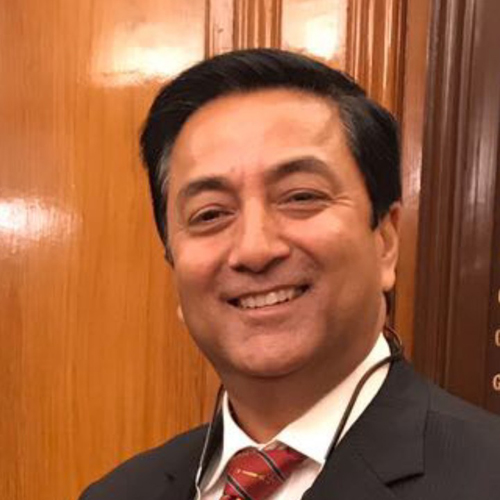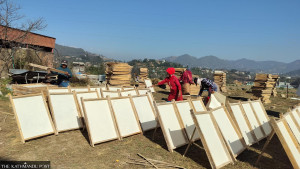Opinion
The next decade
The country’s future will be full of uncertainties if we do not act prudently now
Binoj Basnyat
What will surface in Nepal in the coming years in view of the last two decades of conflict (1996-2006), followed by the peace process and the promulgation of the constitution, only time can tell. Nepal’s political and economic course can be perceived to be moving forward, but the challenges facing the country in the immediate future as well as in the long run can result in political confusion and adverse economic consequences.
The country is currently facing major challenges of transition on the political, economic, diplomatic, governance, social and security fronts. The fault lines have been particularly visible with the Madhes-based political parties’ discontent with the constitution, increasing labour out-migration, and an ailing economy—the lowest GDP in the last 14 years and an inflation rate of 9.5 percent.
On the political front, the country is yet again ready to welcome another government. The constitutional silence on succession provides ample evidence of how our political leaders have a real talent for finding ways to avoid the important work of proper governance. Politics in Nepal is fragmented and bewildering.
The political circumstances are not as well contemplated as they may seem. The unresolved Madhes issue will have long term implications for the federal set-up. The recent Madhes movement has taken a step forward with the amendment bill in Parliament. Meanwhile, other protests have been staged in the Capital by the ‘the federal alliance’. Thus, for the Nepal government, focusing on the issues raised by the agitating forces is important for the country’s long-term political stability.
Learning from others
The ISIL crisis in the Middle East has global impact today. It has been a century since the Sykes-Picot agreement, which divided the spheres of control in the region, was signed in 1916. The agreement disregarded the criteria required for the formation of a nation-state: demography, economic viability and geographical barriers. It paid more attention to the interests of the colonial powers than to local realities while carving up the region. If the states were demarcated taking into account geographic realities, minority concerns and economic viability, the Levant territory would have been more stable today.
Promoting inclusiveness and making opportunities available for the under privileged and the minorities are vital. But at the same time, it is important to make sure that we do not risk the conventions, value and spirit of national institutions for the country’s long-term benefits. India’s experience of the constitutional provision on reservations and the difficulty in making amendments is a case in point.
The attack in Afghanistan in which Nepali security guards were killed shocked the nation. But thousands of Nepalis have died due to various reasons while working abroad. The numbers speak volumes; so many youths going abroad for work is a direct result of the lack of employment opportunities at home. Remittances account for almost one third of the country’s economy.
There are disagreements about federal delineation. It is very important to question whether the provinces will have the potential to serve their people, develop by themselves and get adequate assistance from the central government. Has their economic viability been considered? Foreign assistance is important, but with the changing dynamics in the political sphere in the US, Europe and Asia, aid may come with additional conditions. International political dynamics and psychological change in governance will make policymakers look beyond 2016.
The upcoming election in the US and Trump’s policies have raised concerns for stability and peace not only within the US but also around the world. The killings in Florida, terrorist attacks around Europe, and the crisis and changing security dynamics in the Middle East will impact international relations from which Nepal cannot remain unaffected.
The axial shift of power from the US and Europe to China and India is unrelenting. By 2030, Asia will surpass the combined power of North America and Europe in economic might, population size and military spending. The US will still be the most powerful international player, but China and India will increasingly dictate the terms of global governance.
This calls for sophisticated diplomacy from Nepal by strengthening its relations with India with immediate effect. Nepal should also enhance its relations with China to foster development activities, especially in strategic communication infrastructure, which will develop deeper understanding between China, India and Nepal.
Time for introspection
The post conflict scenario, divided frame of mind, temporary migration for work and religious conversion in Nepal are indications of social disorder in the future. The world is witnessing many events and attacks by different religious groups and at the same time forceful conversion of religion due to poverty and lack of opportunities.
The social order will be unpredictable as uncertainty of the political atmosphere and international concerns will have an impact in the last phase of the ongoing peace process. The formation of Truth and Reconciliation Commission (TRC) and Commission of Investigation on Enforced Disappeared Persons (CIEDP) eight years after the signing of the Comprehensive Peace Agreement is a milestone. The international community, National Human Rights Commission, prominent political leaders, the Chairs of the TRC and CIEDP, and the Supreme Court have called on the government to ensure that the TRC bill meets international standards and have argued that the conflict victims should receive justice through the transitional justice mechanism. The decision will have political and security ramifications.
The question is: do we desire to see the next decade that is steeped in uncertainty or do we want to put our thoughts together to lay the foundations for a stable and prosperous Nepal?
Basnyat is a retired Nepal Army Major General and holds an MPhil in defence and strategic studies




 18.12°C Kathmandu
18.12°C Kathmandu










